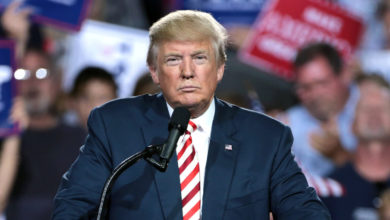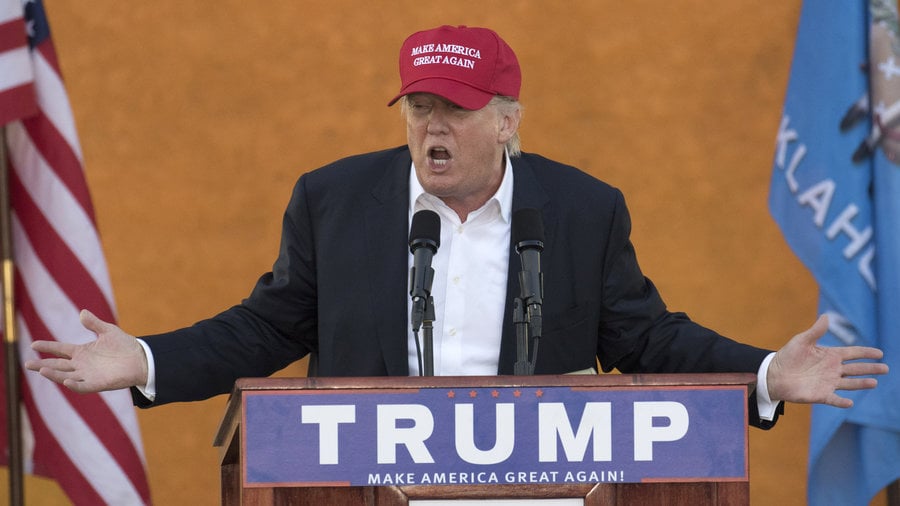Photo: Mock gallows carried by participants in the Jan. 6 attack. Credit: Tyler Mebler
At last Friday’s meeting of the Republican National Committee in Salt Lake City, the Republican Party voted to censure two of its own members of the House — Liz Cheney and Adam Kinzinger — for serving on the committee investigating the Jan. 6 attack on the Capitol. The RNC went so far as to declare the violent assault that saw mobs swarming the Capitol looking to kidnap or kill top politicians “legitimate political discourse.” Cheney and Kinzinger are the only Republicans on the committee investigating the events, which has become the target of outlandish attacks by the far right.
The censure of Cheney and Kinzinger is a reflection of the extent of the rout suffered by the so-called moderate wing of the Republican Party. The Republican Party’s resolution of censure was adopted by a voice vote instead of a formal floor vote, a sign that there was hardly any serious opposition to the move. Despite whatever personal distrust, hesitance or even hatred that Republican politicians may have for Trump and his single-minded pursuit of his own personal interests, they clearly believe that in order to be elected in 2022, they need to express personal loyalty to him and his reactionary program. Kinzinger has already announced his retirement from politics. Cheney, who is now adrift without any campaign funding from the RNC, is facing a Trump-backed primary challenger.
In the immediate aftermath of the Jan. 6 insurrection, Trump and the political movement he represents were on the back foot. The Democratic Party missed the opportunity to put Trump behind bars. Instead of striking a decisive blow against Trump by charging him with seditious conspiracy, he had his Twitter account removed and was impeached — and then acquitted! — mere days before he was set to leave office. This weak-willed approach allowed Trump to style himself as a victim of persecution by the establishment. There was no accountability for the players within the military hierarchy, intelligence agencies or Capitol Police who set the stage for the insurrection to take place.
All of these factors allowed Trump to stage a remarkable comeback. Since the Jan. 6 insurrection, Trump has been largely rehabilitated within the Republican Party. A failure to indict Trump and his co-conspirators has stoked the flames of the far-right movement following him. Fearing Trump’s ire, almost all Republican politicians have refused to participate in the House Select Committee convened to investigate Jan. 6, denouncing it as a partisan witch hunt.
Beholden to die-hard militarists, oil and gas capitalists, hardline racists and anti-women and anti-LGBTQ bigots, the Republican Party has long been a completely odious organization. However, in order to maintain the “democratic” shell of capitalist class rule, it has had to abide by the framework of the country’s constitution. A peaceful transfer of power from one party to another provides the legitimacy and stability necessary for the capitalist class to continue to exercise their grip over society. The all but open embrace of the Jan. 6 insurrection by the Republican Party signals that the battle between the old guard establishment and the far-right elements animated by Trump is tilting decidedly in favor of the latter.
It is also remarkable how greatly the attitude of the Republican Party towards the political discipline of its own members differs from the Democrats. While the Republican Party has taken measures to effectively exile members who had deviated from the emerging far-right consensus, Democrats categorically refused to discipline senators Manchin and Sinema after they torpedoed Biden’s signature social program legislation.
Democrats and Republicans alike have proven themselves incapable of facing down the threat to the working class posed by Trumpism and the outright fascist forces it is energizing. It is up to socialists and others committed to fighting for the interests of the working class to take up the mantle of struggle in the streets and become the strongest and most steadfast voices rallying a united fight back against the rising tide of the far right.



